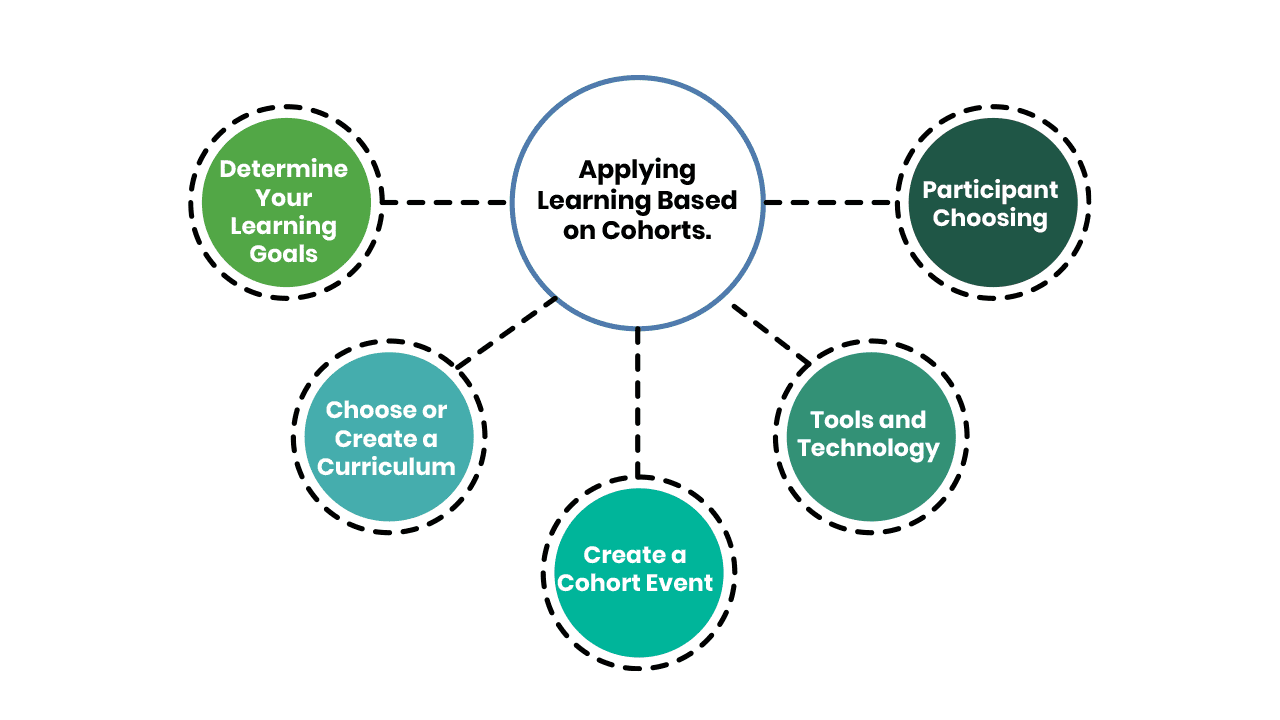In today’s fast-paced and ever-evolving business landscape, organisations face the constant challenge of staying competitive and maintaining a continuous learning and improvement culture. To achieve organisational excellence, companies must invest in strategies that empower their employees to adapt, innovate, and excel. One such strategy that has gained momentum in recent years is cohort-based learning.
In the past couple of years, the learning and development field has undergone a significant transformation, all thanks to the advancement of technology, changes in instructional theories, and evolving learning requirements. Traditional classroom models, which did not offer personalised experiences, were the norm in the past. Correspondence courses and distance learning emerged but needed more interaction. Later, online learning platforms emerged, incorporating interactive elements and creating communities. Cohort-based models became famous as the learning instructors realised the advantages of collaborative learning. Social learning platforms, discussion forums, video conferencing, and collaboration tools facilitated cohort-based learning. Today’s modern cohort-based learning models emphasise personalisation and flexibility, frequently using adaptive learning techniques. Hybrid and blended approaches combine in-person and online elements, whereas industry-specific and skill-based cohorts cater to industry requirements.
Cohort learning is a shared learning approach where a group of learners go through the learning materials or courses together rather than individually. Cohort-based learning fosters collaboration, enhances learning experiences and provides a supportive environment for skill development and knowledge sharing.
Cohort-based learning is also a strategy that can benefit organisations across various sectors and industries, such as employee training, educational institutions for specific courses, professional development programs, startups and incubators, nonprofit and community organisations, professional networking groups, tech and innovation hubs, healthcare and medical institutions, and government agencies. The cohort-based learning strategies can be tailored to meet an organisation’s specific objectives and target audience.
The Benefits of Cohort-Based Learning for Organisations:
- Increased Accountability and Engagement: Cohort-based learning encourages community and connection among participants. People are more engaged and accountable since they feel compelled to follow the group’s success.
- Defined Learning: Organisations can ensure staff members adhere to a defined curriculum to meet predetermined learning goals. The specified learning makes it easier to match the training with the objectives of the business and the abilities needed to succeed in the field.
- Skill Development: Working in a team atmosphere allows employees to develop new abilities. Cohort members’ sharing of thoughts and experiences can result in deeper understandings and improved skill sets.
- Knowledge Retention: The cohort’s interactions and discussions help to strengthen learning and enhance memory recall.
Applying Learning Based on Cohorts.
To effectively implement cohort-based learning inside an organisation, the following actions need to be taken:
Determine Your Learning Goals: Clearly state the competencies, knowledge, and skills your organisation hopes to acquire through cohort-based learning.
Choose or Create a Curriculum: Select or create a curriculum that aligns with the learning goals. Make sure the information is interesting, current, and relevant.
Create a Cohort Event: Provide a timetable and programme structure for the cohort-based learning initiative. Establish the length, frequency, and need for extra resources or help for each session.
Tools and Technology: Invest in the equipment and technology required to make the cohort experience easier. Examples include a learning management system, communication channels, and content delivery systems.
Participant Choosing: Participants should be chosen according to their skill levels.
Airbnb’s Entrepreneurship Academy as a Case Study
A noteworthy example of successful cohort-based learning is the Airbnb Entrepreneurship Academy. Since its inception in 2017, the academy has expanded to support over 40 organisations, with 2023 marking its largest cohort. The academy has proven to be a dynamic platform for fostering entrepreneurship skills and collaboration.
Conclusion.
Cohort-based learning is a powerful tool for promoting employee collaboration, accountability, and skill development in the ever-changing business environment. It allows organisations to adapt to change, promote a culture of continual learning, and empower their workforce to excel.
Our team at Phillips Consulting is readily available to implement Cohort-based learning in your organisation. So, contact our consultants today via digitallearning@phillipsconsulting.net, and let’s help achieve learning excellence in your organisation.
Written by:

Innocent Nwasolu
Senior Analyst
![]()

